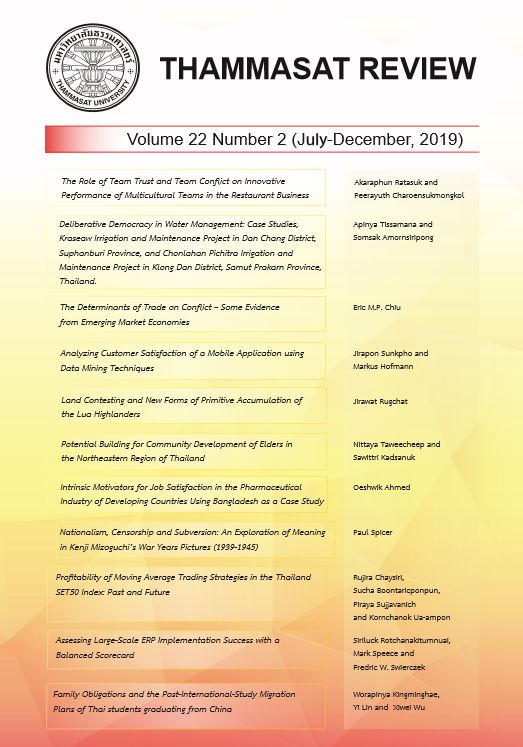Deliberative Democracy in Water Management: Case Studies, Kraseaw Irrigation and Maintenance Project in Dan Chang District, Suphanburi Province, and Chonlahan Pichitra Irrigation and Maintenance Project in Klong Dan District, Samut Prakarn Province, Thailand
Keywords:
Deliberative Democracy, Water Management, Conflict Resolution, ThailandAbstract
This research covers the process of deliberative policy-making in the context of environmental conflict resolution concerning water resource conflicts in two case study areas in Thailand. Specifically, the objectives of this research were to study the use of deliberative policy processes to reduce water management conflicts in two case study areas, examine ground rules and deliberative indicators for water management, and establish a model for effectively reducing water management conflicts. The research reviews relevant literature on deliberative democracy concepts, and conflict management for water conflict. The study examines administrative sections of the Royal Irrigation Department, under the Ministry of Agriculture and Cooperatives, which have direct responsibilities related to water management, deliberative policy-making processes, and policy stakeholders. Two irrigation project sites were chosen as case studies: 1) the Kraseaw Irrigation and Maintenance Project in Dan Chang District, Suphanburi Province, Thailand, and 2 the Chonlahan Pichitra Irrigation and Maintenance Project in Klong Dan District, Samut Prakarn Province. These two irrigation projects are successful cases of local water management in which deliberative democracy and collaborative governance are used to reduce conflicts in water management.
Deliberative Democracy and deliberative policy-making process have changed their definition from “the water state-centric management” into “people-centric administration” in water management. This is a dynamic learning process within the public space rather than policymaking done by policy analyst technicians.
Downloads
Published
How to Cite
Issue
Section
License
The opinions and ideas expressed in all submissions published in Thammasat Review are solely that of the author(s) and do not necessarily reflect that of the editors or the editorial board.
The copyright of all articles including all written content and illustrations belong to Thammasat Review. Any individuals or organisation wishing to publish, reproduce and distribute a particular manuscript must seek permission from the journal first.








